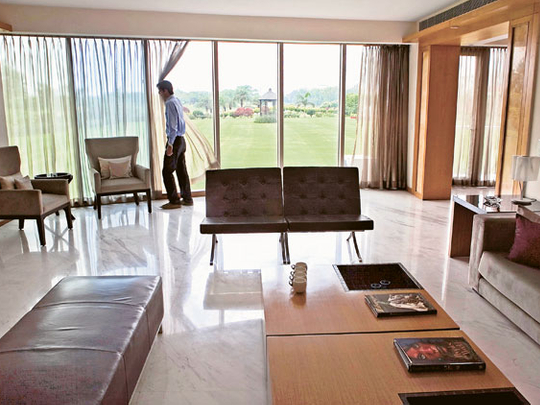
In the years that I've been consulting, I've been asked this particular question a lot by clients in their early 30s - "I've been contemplating buying a place of my own for a while now. Should I or shouldn't I?"
Now, it's not that I'm tired of answering this query, and I do think this is relevant to a lot of us reading this magazine. So here's what I've got to say on the subject.
The first thing you need to isolate is the purpose of the property purchase. If this property is intended to be an investment then treat it as such. If you do plan to buy property to actually live there, then there are more factors to consider.
If your purchase is solely meant to be an investment, then there are two things to think about. Firstly, are you buying land or a house/apartment? If you are buying land, then what you are really hoping for is capital appreciation over the years. Now take a long hard look at your finances - is this something you can manage? If your intention is to buy this land in your home country then it is important to find out if you have enough people there to manage the investment. Because investing in land can be pretty tricky. If you plan to just buy land and let it rest, then you risk opening the door to land squatters. This has the potential to become an absolute nightmare, as those living in the subcontinent know all too well. Here are a few ground rules to follow in case you are buying land: get a boundary wall erected for your property and put up boards with your contact details as well as a ‘No Trespassers' sign. It would also be in your interest to befriend some locals in the area and hope that they will inform you about any unauthorised encroachments on your property.
Second scenario: are you buying an apartment? These are much simpler to manage as an investment than land. Just make sure you think long and hard about the purchase, as in most cases this type of a purchase is done on a mortgage by putting down capital upfront.
The rule of thumb is to cough up enough money upfront as down payment to ensure that your monthly instalments are low. In this scenario your rental income can take care of the monthly instalments, even if rental income is at its lowest. So now, there is no additional financial burden on you, and your monthly salary can run parallel investments. However, you should bear in mind that there could be additional costs such as society fees, or income tax, property taxes and/or maintenance fees involved too.
When dealing with any such assets, always ensure that you deal with the experts. Get the right lawyers to draw up sale or lease deeds so that your interests are protected. Also bear in mind that too much of a good thing, even if it is property, can be bad. Remember, the first rule of investment is diversification.
Rickson D'Souza is director of wealth management at Pinnacle Insurance Brokers, Dubai. He is also a member of the Top of the Table at the Million Dollar Roundtable. This basically means he is among the top 1 per cent of financial advisers in the world.












